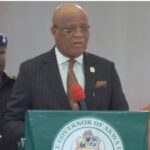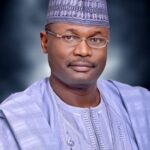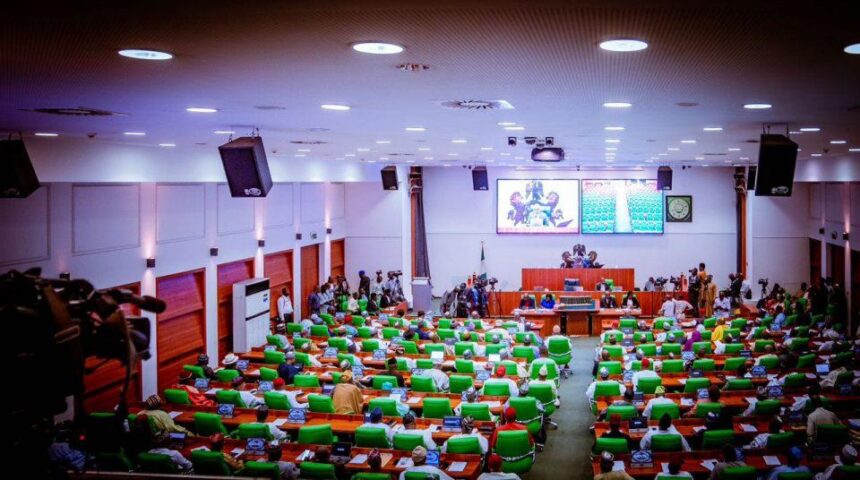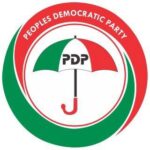The House of Representatives Constitution Review Committee’s proposed creation of 31 additional states besides the country’s 36 existing states has sparked widespread reactions from prominent Nigerians and groups across the country.
The proposal was contained in a letter to the House of Representatives read during Thursday’s plenary by the Deputy Speaker, Benjamin Kalu, who presided over the session in the absence of the Speaker, Tajudeen Abbas.
However, the proposal was rejected by the Yoruba socio-cultural organisation, Afenifere, and its northern counterpart, the Arewa Consultative Forum, which described it as ridiculous.
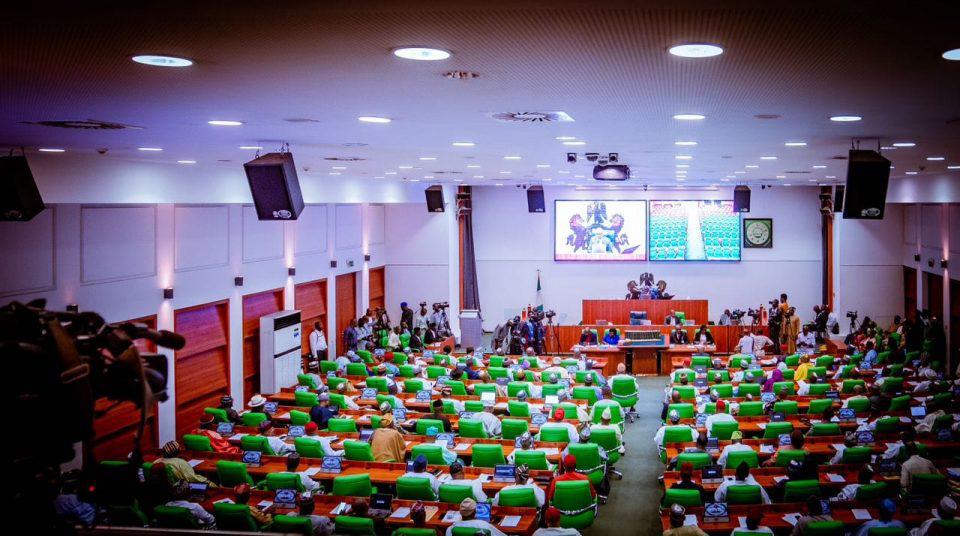
The committee, chaired by Kalu, proposed an additional six new states in the North-Central, four in the North-East, five in the North-West, five in the South-South, and seven in the South-West.
The states being considered include Okun, Okura and Confluence from Kogi; Benue Ala and Apa from Benue; FCT State; Amana from Adamawa; Katagum from Bauchi; Savannah from Borno; Muri from Taraba; New Kaduna and Gujarat from Kaduna State; Tiga and Ari from Kano; Kainji from Kebbi; Etiti and Orashi as the sixth states in the South-East; Adada from Enugu; and Orlu and Aba.
Others are Ogoja from Cross River, Warri from Delta, Ori and Obolo from Rivers, Torumbe from Ondo, Ibadan from Oyo, Lagoon from Lagos, and Ogun, Ijebu from Ogun, and Oke Ogun/Ijesha from Oyo/Ogun/Osun States.
The letter read in part, “The Committee proposes the creation of 31 new states. As amended, this section outlines specific requirements that must be fulfilled to initiate the process of state
creation, which include the following:
“New state and boundaries; An act of the National Assembly for the purpose of creating a new state shall only be passed if it requires support by at least the third majority of members.
‘’The House of Representatives, the House of Assembly in respect of the area, and the Local Government Council in respect of the area is received by the National Assembly.
“Local government advocates for the creation of additional local government areas are only reminded that section 8 of the Constitution of the Federal Republic of Nigeria, as amended, applies to this process.
“Specifically, in accordance with section 8 (3) of the Constitution, the outcome of the votes of the State Houses of Assembly in the referendum must be forwarded to the National Assembly for fulfilment of state demands.
“Proposals shall be resubmitted in strict adherence to the stipulations. Submit three hard copies of the full proposal of the memoranda to the Secretariat of the Committee in Room H331, House of Representatives, White House, National Assembly Complex, and Abuja.
“Sub-copies must also be sent electronically to the committee’s email address at info.hccr.gov.nj. For further information or contact, please contact the Committee Clerk at 08069-232381.
“The committee remains committed to supporting the implementing efforts that align with the Constitutional provisions and would only consider proposals that comply with the stipulated guidelines. This is coming from the Clerk of the Committee on Constitutional Review.’’
Taking a dim view of the bill, the National Organising Secretary of Afenifere, Abagun Kole Omololu, explained that the proposed state creation negated Afenifere’s demand for true federalism.
He said, “The recent proposal by the House of Representatives Committee on Constitution Review to create 31 new states does not align with Afenifere’s long-standing demand for true federalism.
“Instead of addressing the core structural issues plaguing Nigeria, this initiative appears to be a mere political exercise that will further weaken governance and deepen economic inefficiencies.’’
Afenifere has consistently advocated genuine fiscal federalism, similar to what Nigeria’s founding fathers agreed upon before independence.
Omololu noted, “The creation of more states without a viable economic foundation will only compound the financial burden on the nation, as many existing states are already struggling to generate sufficient Internally Generated Revenue and rely heavily on federal allocations to survive.
‘’Turning every local government into a state is not the solution to Nigeria’s governance challenges. The real issue is not the number of states but the dysfunctional federal structure that has concentrated power at the centre, stifling regional development.’’
Instead of proliferating states that may later be unviable, Afenifere urged the National Assembly to focus on constitutional reforms that would devolve power, return resource control to the regions, and grant states the autonomy to develop at their own pace.
“Nigeria needs a system where states or regions control their resources and contribute an agreed percentage to the federal government, just as it was during the First Republic. This is the only path to sustainable development, not the reckless creation of more administrative units.
“Afenifere rejects this proposal and calls on well-meaning Nigerians to resist attempts to distract from the real conversation—restructuring and true federalism,” Omololu declared.
The Arewa Consultative Forum similarly expressed strong opposition to the proposed creation of 31 new states, describing the idea as unnecessary.
The National Publicity Secretary of the ACF, Prof Tukur Muhammad-Baba, stated that the forum was not in support of the proposed creation of new states, citing the country’s complexity and the potential for creating more problems.
According to him, the more states created, the more demands that will emerge, leading to more acrimonies.
He questioned the economic viability of the existing 36 states, highlighting the administrative burdens and overhead costs associated with governorship and civil service.
The ACF spokesperson, who spoke to The KUKURUKU in Kaduna on Thursday, emphasised that creating new states would be too expensive and unnecessary, and would only provide opportunities for the elite to assume leadership positions without necessarily improving the economic viability of the states.
He said, “We have not seen the details of the proposed states, but it’s ridiculous. How long are we going to be creating states and creating problems in this country?
“How many of the 36 states are viable economically? How many of the states can carry the administrative burdens of governorship and all it takes – the civil service and the amount of expenditure on overhead?
“Honestly, I don’t think the creation of states is our priority because it’s too expensive and unnecessary, and there is no way it will stop. It’s opening up room for more demands and more acrimony.”
Instead of creating new states, he advised the government to focus on addressing the social and economic challenges facing the people.
“We hope that more rational heads will prevail over the issue, but right now, honestly, it’s not the priority; affecting the lives, and the social-economic standing of the people is a better objective to pursue.
“Creation of state as we have seen will not solve our problems. It will give some elites a chance to assume leadership positions with all the perks that are attached to the office, but honestly, we don’t think economically, they will be viable,” Muhammad-Baba said.
But the National President of the Middle Belt Forum, Dr. Bitrus Pogu, endorsed the proposal for additional states.
Speaking with The KUKURUKU in Jos on Thursday, Pogu described the proposal as a welcome development that addresses the country’s long-standing issues of equity and governance.
As a proponent of the Savannah state, Pogu emphasized that the MBF supports the proposal, citing the need for a more inclusive and representative system of government.
“The challenge of Nigeria requires a lot of tinkering to get it right. There has been no equity in the whole process of governing Nigeria”, he said
Pogu highlighted the example of Southern Borno, which has never produced a governor, with the position always being held by either Northern or Central Borno.
He argued that the proposed creation of new states would help address the plurality of Nigeria and promote a more equitable distribution of power and resources.
The MBF has long advocated for greater autonomy and representation for the region’s diverse ethnic groups.
The proposed creation of new states is seen as a significant step towards addressing the historical injustices and imbalances in the country’s governance structure.


